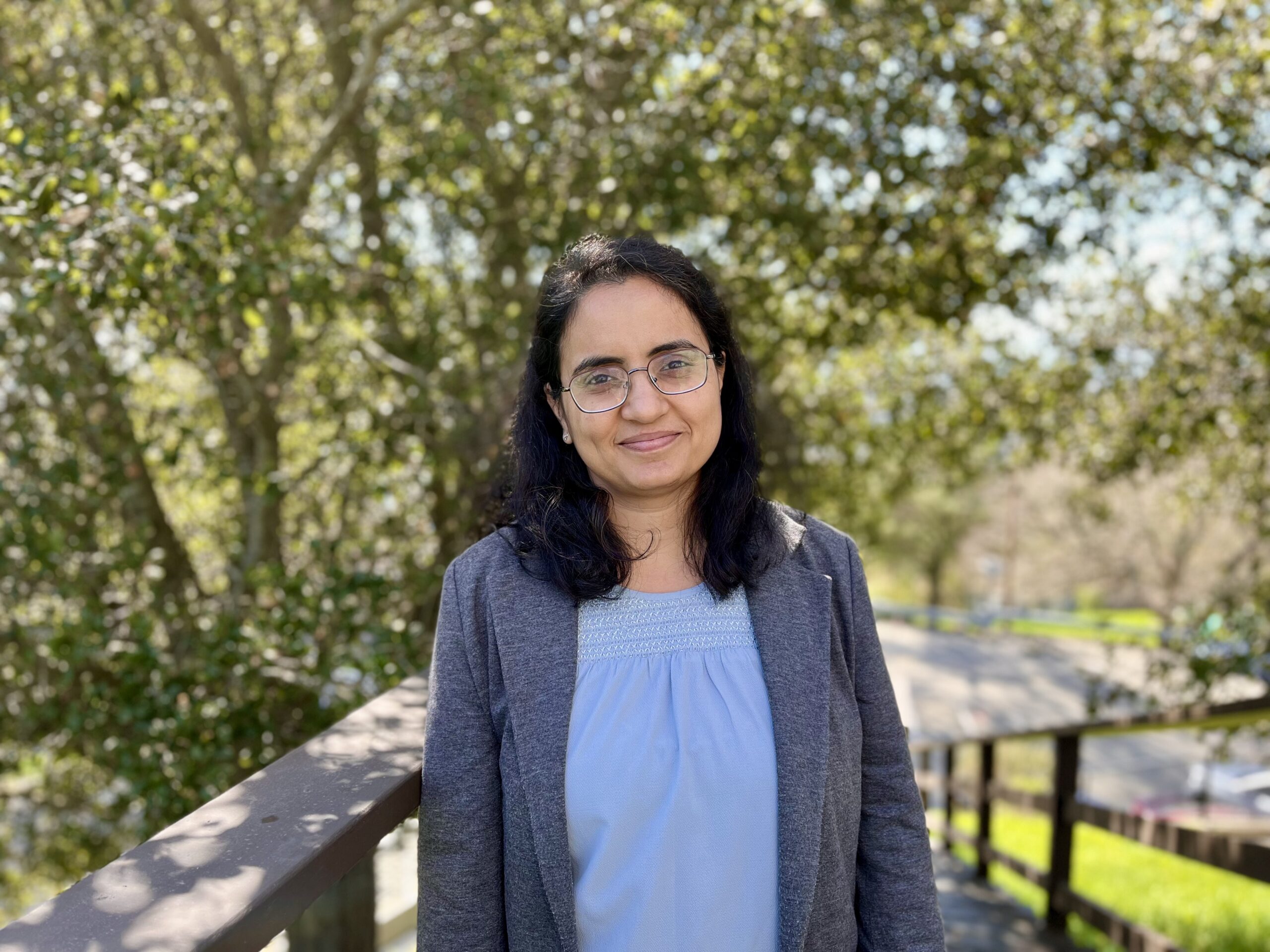 As a postdoc, Monika Choudhary applies computing models to real experimental data at the ALS, work that uses her extensive computer science knowledge and experience. Read more about the path that led her to the ALS and the people she’s met along the way.
As a postdoc, Monika Choudhary applies computing models to real experimental data at the ALS, work that uses her extensive computer science knowledge and experience. Read more about the path that led her to the ALS and the people she’s met along the way.
What are you working on at the ALS?
Since I joined the ALS, I’ve been working on the Advanced Intelligent Materials Modeling (AIMM) project. I analyze experimental spectral data to infer possible structural and chemical information using artificial intelligence and machine learning (AI/ML) techniques. I have applied adversarial autoencoders and signal-processing algebra such as Fourier transform to generate latent spaces that have desirable properties and are efficient in classification. Currently, I am working on applying unsupervised approaches on x-ray absorption spectroscopy data.
What are the benefits of applying these methods to the spectral data?
Beamlines generate a vast amount of data. As part of the AIMM Project, we have over 75,000 instances of spectral data in one of the datasets. By applying discriminators and generators to produce latent vectors with superimposed structural properties, we can potentially predict the properties of materials. The implementation of boosting algorithms and ensemble architectures can aid in classifying materials based on their structural, chemical, and physical properties. Additionally, AI tools can assist in characterizing data quality.
What path led you to the ALS?
I come from Bikaner in Rajasthan, a place known for its rich culture in western India. I completed my schooling and undergraduate studies in computer science there. As I was keen on furthering my studies in computer science, I pursued my master’s degree at IIT Roorkee, where I was among the top one percentile of the students to get admitted. For my Ph.D., I focused on assessing the credibility of user-generated content on online social media platforms.
I come from a humble background and was fortunate to get an opportunity to study. I am motivated and a proponent of women’s participation in STEM. That is why I chose to be a faculty at one of the first technical women universities in India.
After teaching for seven years in academia and holding a tenured faculty position, I sought to further challenge myself and delve deeper into AI research. I was looking for an environment that would both challenge me and enhance my research skills, which led me to apply for a postdoc position at LBNL.
How has your experience so far compared with your expectations??
I anticipated an immersive research environment with individuals dedicated to developing innovative solutions and solving complex problems. Fortunately, I have found such an environment at the Lab, which is fantastic. I find the work both exciting and challenging. However, as my background is in computer science, grasping the physics and materials aspects of the research does not come naturally to me. Nevertheless, I welcome the challenge and am actively familiarizing myself with concepts that I studied back in high school. The computing group has been instrumental in helping me navigate this process.
How are you involved in inclusion, diversity, equity, and accountability (IDEA) efforts?
Since I just joined the ALS, I am still exploring how I can contribute to this domain. I have been a strong proponent of women’s empowerment and their participation in STEM. I am excited to continue that journey here.
I mentored many students while being a faculty at the first women’s technical university in India, and it’s my biggest joy to see them as professional engineers today! I have also mentored underprivileged girls studying in high schools. It was an emotional moment when some of these girls made it to our university.
What do you like to do in your free time?
Family is really important to me. I cherish spending time with them. I adore playing with my nephew whenever I get the chance.
I also like to spend time in nature, hiking or going to beaches. Recently, I went on a hike to Sunol with the Berkeley Lab Postdoc Association. I also like cooking as it helps me destress.
What else would you like to share with the ALS community?
I wish to thank the ALS for being such a welcoming community. Here, I encounter people from all over the world, each with diverse backgrounds and cultures. Despite these differences, everyone is incredibly helpful and supportive of one another. Oh, and Cookie Time on Thursdays is the best time to interact with the ALS community as a whole!